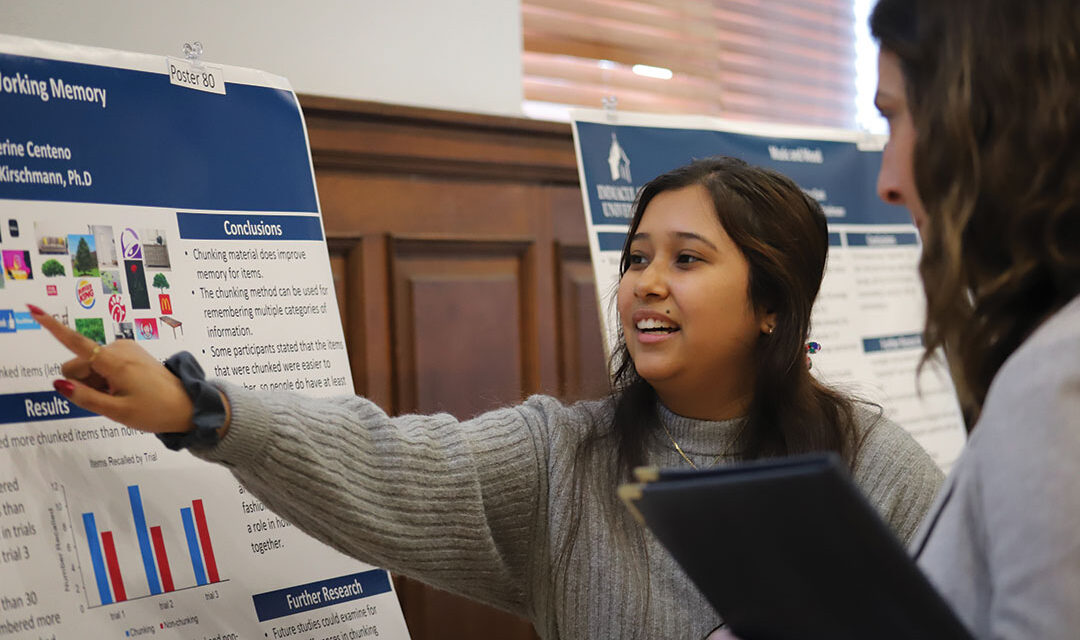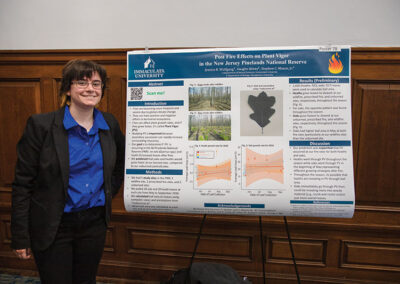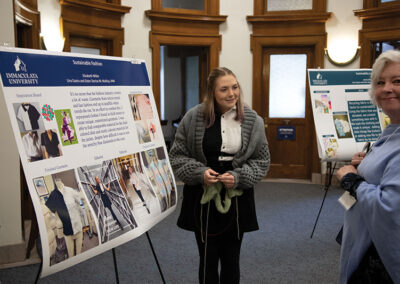
At five student research poster presentation events Immaculata held this spring, visitors saw the curiosity and enthusiasm on students’ faces as they explained their projects and what inspired them to investigate their chosen topics.
The events included capstone presentations by graduate nursing and nutrition students and research posters created by undergraduate students in disciplines ranging from athletic training to political science. The students told guests about the academic journals they consulted, the studies they designed, the variables they explored, the hours they spent in the lab, the people they polled, the data they crunched and the outcomes they got that either confirmed their hypotheses or surprised them and raised new questions.
Through their research projects, students learned about both their subject matter and themselves, discovering their interests and talents and how they can use them to benefit patients, ecosystems, their academic fields and their local communities. And even when their research didn’t go as expected, they learned from mishaps, built their troubleshooting skills and gained crucial experience for their résumés and for further studies.
Here are just a few of the many research projects students conducted:
- How fast do the leaves of oaks and heaths grow after wildfires and prescribed fires compared to unburned sites? Based on the average area of 1,830 leaf samples taken from various sites throughout the growing season, heaths and oaks grew at different rates at each site, which may represent different growing strategies between the two taxa.
- An educational program will prepare hospital nurses to manage incivility through cognitive rehearsal training. Giving nurses strategies to address incivility should improve relationships among the clinical care team and reduce nurse attrition.
- For dialysis patients with elevated phosphorus levels, replacing some animal products with plant-based foods improved phosphorus and albumin levels without interfering with other nutrients. Eight of the 10 patients achieved phosphorus levels within the recommended range.
- A group of 21 patients with mental and/or physical disabilities were more likely to report negative experiences in health care settings, such
as feeling stigmatized and neglected, compared to a control group of people without disabilities.










